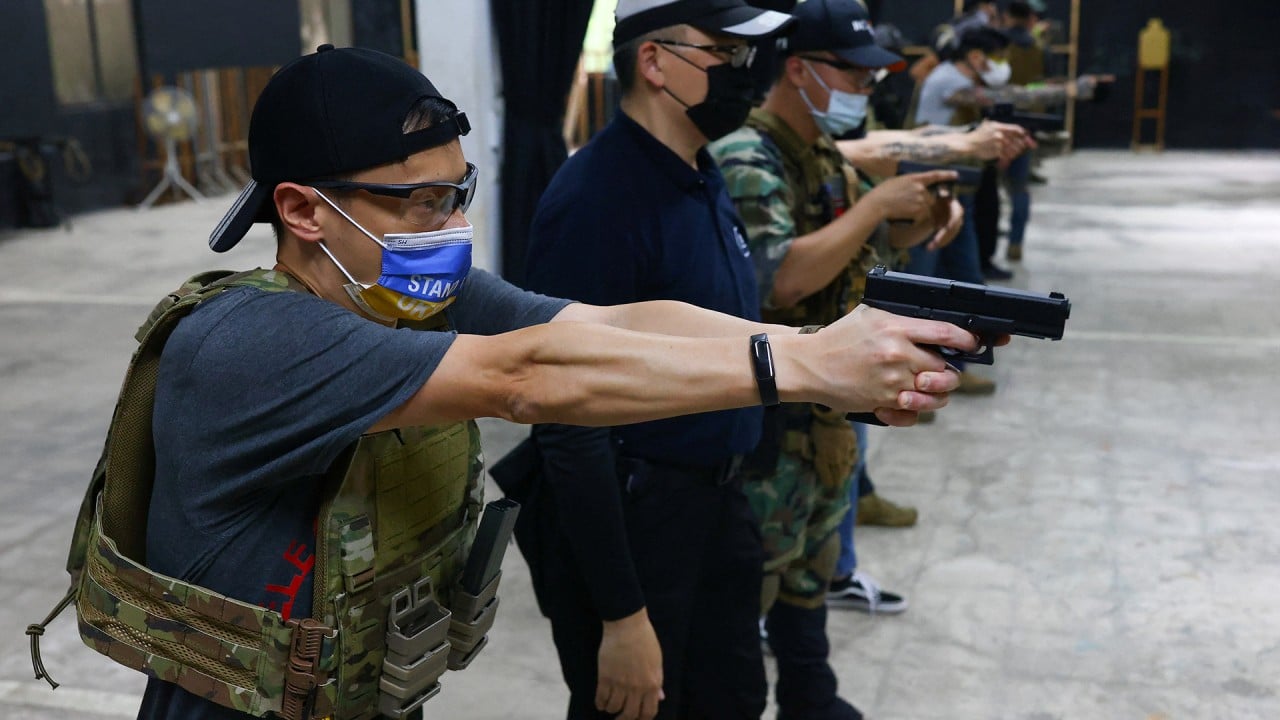
02:50
More Taiwanese seek gun training as Ukraine war drives home cross-strait tension

This year’s Shangri-La Dialogue security forum could well be one of the most significant in the gathering’s history. With tensions between China and the United States at their highest for decades, it enabled the defence chiefs of both countries to finally meet face to face.
If there was any confusion over issues such as Taiwan and military alliances, positions have now been made clear. Dialogue and consultation, not sabre-rattling, are the best way to move forward.
The annual forum in Singapore was the first since 2019, the Covid-19 pandemic having prevented in-person meetings. Such interaction has enabled views to be candidly and succinctly expressed, and that is what State Councillor and Defence Minister Wei Fenghe did during talks with his American counterpart, Lloyd Austin.
In Beijing’s clearest warning to Washington over Taiwan, he reiterated its red lines and that the People’s Liberation Army would “fight at all costs to defend the country’s territory, sovereignty and integrity”.
The comment is not aimed at provoking, but ensuring the US takes the issue seriously and ends sending confusing messages. Austin pledged Washington was committed to abiding by the one-China principle. The South China Sea and Ukraine crisis were among other issues discussed.
Underlying discussions were efforts by the West to extend the North Atlantic Treaty Organisation’s reach to Asia.
Wei’s talks with Japanese and Australian counterparts touched on the matter, both nations being part of Washington’s Quad security alliance along with India.
The US is pushing the idea as part of its strategy to divide the region to further rivalry with China. But Southeast Asian defence ministers, mindful of the need to balance relations with leading powers rather than choose sides, were understandably not in favour of potential confrontation and spoke of the need for dialogue.
This is the “Asian way” of dealing with disputes and it has successfully kept the region largely stable and peaceful.
US arms sales to Taipei, the latest being a further US$120 million in equipment, and Chinese and American and allied naval and air force manoeuvres in the South China Sea and near Taiwan, heighten the risks of conflict.
Improving communication between the US and Chinese militaries through the setting up of more hotlines and an engagement mechanism, as put forward by Austin, is obviously good and would lessen the risk of accidental fire. But better still, as Beijing contends, is an end to provocative actions.
Washington’s efforts to contain China threaten stability. The meeting between Wei and Austin has brought a measure of comfort. Constructive dialogue and greater communication are the sensible ways to ease tensions.